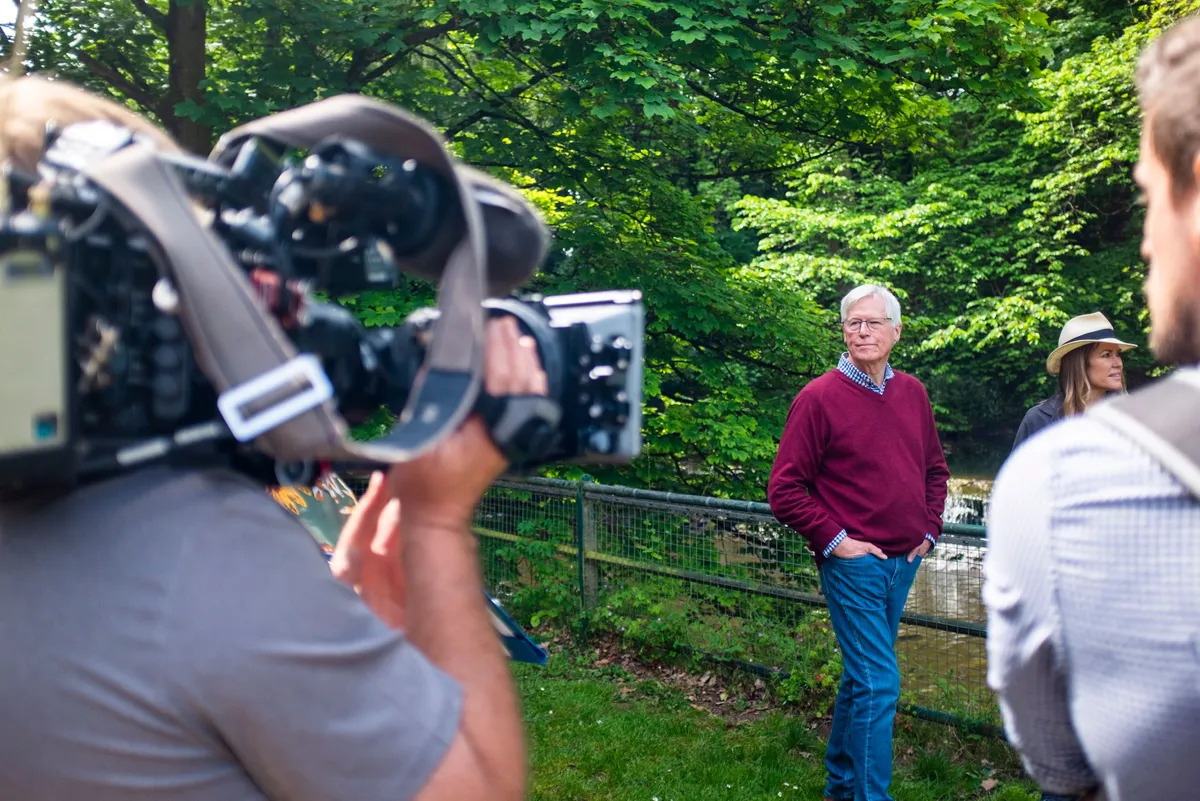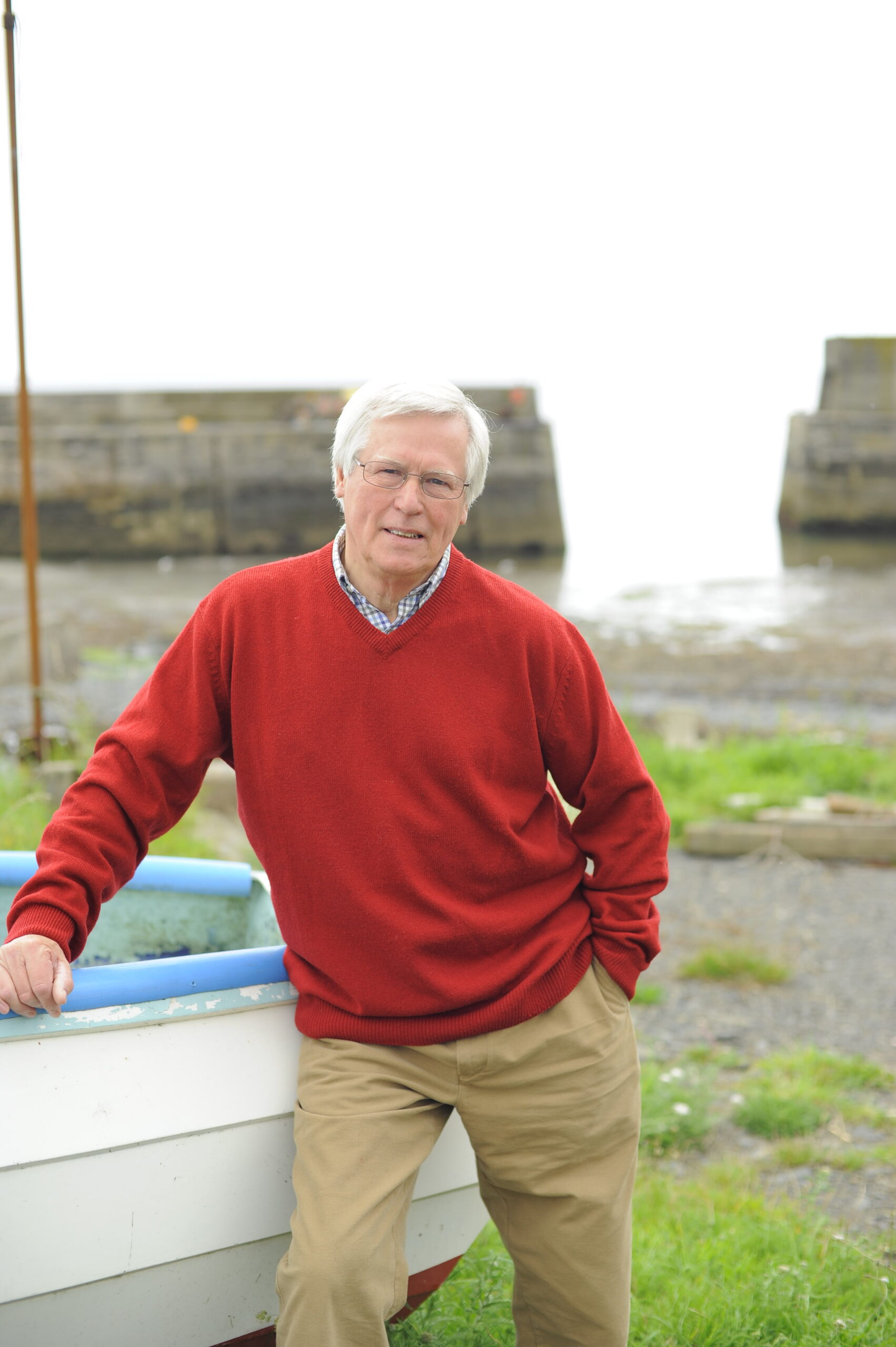During my two decades on Countryfile I reckon I’ve covered around 2,000 stories, but rarely do I get the chance to return to any of them to discover what happened next – apart from the big ones with profound national consequences, like foot and mouth disease. But along comes Country Tracks, which has taken our place on BBC One’s Sunday morning schedule, to delve into the BBC’s rural archives. It searches for previous films from wherever it finds itself and, whenever possible, updates them.

I was watching a recent edition when up popped a report I’d made in 2001 about a row over quarrying in the Peak District National Park. Feelings were running high over threats to an ancient stone circle, the Nine Ladies, if plans went ahead to reopen an old quarry. Country Tracks discovered the dispute has only just ended. The quarry company abandoned its plans in exchange for extending its work in a less sensitive area, and the protestors took down their makeshift camp (pictured above left) after nearly 10 years. The Nine Ladies are safe and the story has gone full circle.
Prophetic pioneer
One of the great campaigners for rights of access in the countryside, Benny Rothman, has also featured on Country Tracks, in a film first shown back in 1989. Benny, who died seven years ago, spent time in jail in the 1930s for his part in the famous mass trespass of Kinder Scout (pictured above right), a 600m (1,968ft) high plateau in the Peak District. The programme gave us another chance to hear his story, of how a bunch of mainly working-class folk challenged the might of landowners in the belief that anyone should be free to walk the English uplands. Their actions led to scuffles with police and court appearances for some of the ramblers, including Benny.
In 1989 he was still campaigning and was just as enthusiastic, though much frailer, when I met him a few years later. Benny saw partial victory when the Countryside and Rights of Way Act came into force in 2000. And 20 years ago his prophetic words were: “I think if we got general access to all uncultivated land, with the exception of those parts where walking would positively damage wildlife, then the pressures on the countryside would be less – they would not be increased.”
The heart of Countryfile
That self-styled vocal yokel Robin Page has been having yet another go at Countryfile. He really has got a bee in his bonnet about the show (for which he briefly appeared as a guest presenter) but I do wish he’d get his facts right. Recently he wrote in a national newspaper that “rural Britain has never been threatened by more important issues.” I’d certainly agree with that. Among the issues he listed were food security, GM crops, badgers and TB. He went on to ask: ”But is Countryfile bothered? Of course not.”
Well, Mr Page, we are so unbothered that among the issues the programme has dealt with in depth since we moved to Sunday evenings are indeed food security, GM crops and badgers and TB – as well as the lack of affordable homes, bluetongue, dairy cattle welfare, travellers ignoring planning rules, salmon farmers versus anglers, methane emissions from livestock, and the impact of alien species on the countryside. Yet he claims that Countryfile is: “portraying rural Britain as a theme park for the amusement of urban do-gooders.” True, the British countryside is a place for everyone to enjoy and we do reflect that. But, as regular viewers will know, reporting the realities of rural life has always been at the very heart of the programme. It’s the reason I’ve felt so passionately about Countryfile from the day I joined. Mr Page admits he doesn’t watch it, so how would he know?
Harmful holly
It’s not long now before we’ll be hanging up the Christmas holly, but this seasonal bush has become the dark invader of our woodlands. A survey of 100 woods in Dorset found holly in nearly every one, whereas in the 1930s it grew in just half of them. It’s dark, dense and kills off the undergrowth. Sad to say, the survey concluded that woods are losing their individuality. More than 100 species have vanished in the past 80 years, while less than 50 new ones have appeared.
The changes have been blamed on the demise of coppicing and the increased run-off of nitrogen from farms. As a nation we need to restore our traditional woodlands. Let’s hope we’re not too late.

